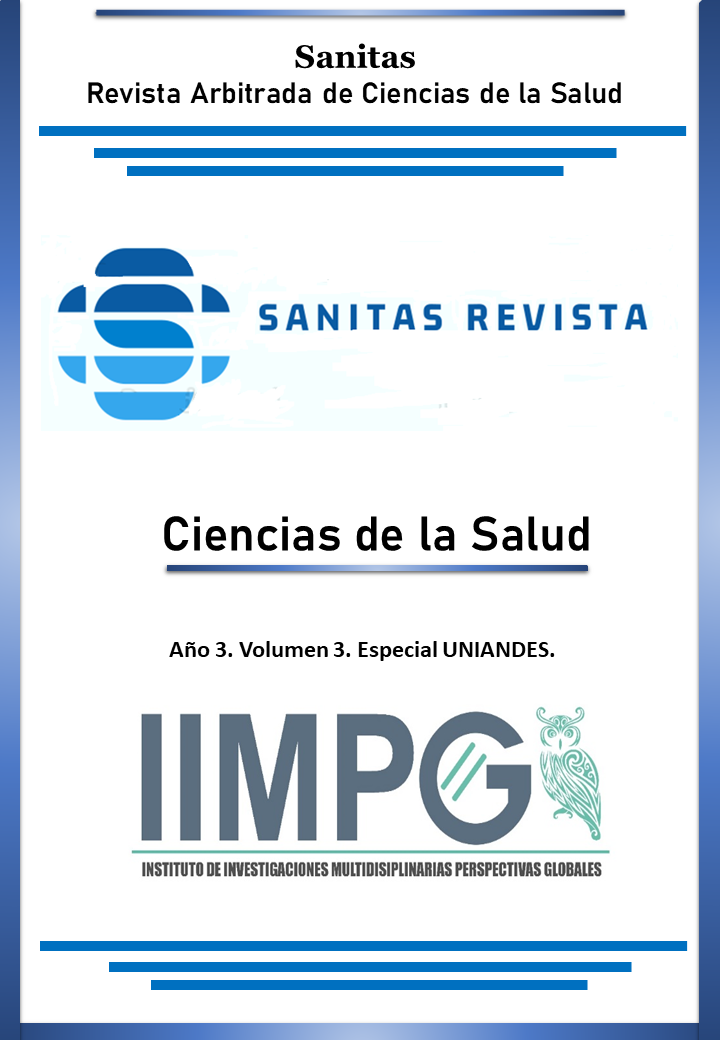Manejo efectivo de la diarrea enfocadas en el plan A del AIEPI [Effective management of diarrhoea with a focus on IMCI plan A]
DOI:
https://doi.org/10.62574/jr43td73Palabras clave:
diarrea, diarrea infantil, disenteríaResumen
Objetivo: analizar el manejo efectivo de la diarrea enfocadas en el plan A del AIEPI. Método: se aplicó revisión sistemática, la población se refinó a 15 articulos científicos relacionados. Conclusión: El Plan A del AIEPI ha demostrado ser una estrategia efectiva en el manejo de la diarrea infantil, contribuyendo significativamente a la reducción de la morbimortalidad, al uso racional de antibióticos y a la mejora de la atención en salud primaria. No obstante, su éxito depende en gran medida de la capacitación continua del personal de salud y del respaldo institucional para superar las barreras políticas y de recursos. La flexibilidad del AIEPI para incorporar nuevas intervenciones, como el uso de probióticos, refuerza su potencial como una herramienta adaptable y eficaz en el control de diversas formas de diarrea, permitiendo una atención más integral y eficiente en los sistemas de salud.
Descargas
Referencias
Carai S, Kuttumuratova A, Boderscova L, et al. The integrated management of childhood illness (IMCI) and its potential to reduce the misuse of antibiotics. J Glob Health. 2021;11:04030. Published 2021 May 22. doi:10.7189/jogh.11.04030
Patwari AK, Raina N. Integrated Management of Childhood Illness (IMCI): a robust strategy. Indian J Pediatr. 2002;69(1):41-48. doi:10.1007/BF02723776
Gera T, Shah D, Garner P, Richardson M, Sachdev HS. Integrated management of childhood illness (IMCI) strategy for children under five. Cochrane Database Syst Rev. 2016;2016(6):CD010123. Published 2016 Jun 22. doi:10.1002/14651858.CD010123.pub2
Nguyen DT, Leung KK, McIntyre L, Ghali WA, Sauve R. Does integrated management of childhood illness (IMCI) training improve the skills of health workers? A systematic review and meta-analysis. PLoS One. 2013;8(6):e66030. Published 2013 Jun 12. doi:10.1371/journal.pone.0066030
Ahmed HM, Mitchell M, Hedt B. National implementation of Integrated Management of Childhood Illness (IMCI): policy constraints and strategies. Health Policy. 2010;96(2):128-133. doi:10.1016/j.healthpol.2010.01.013
Rakha MA, Abdelmoneim AN, Farhoud S, et al. Does implementation of the IMCI strategy have an impact on child mortality? A retrospective analysis of routine data from Egypt. BMJ Open. 2013;3(1):e001852. Published 2013 Jan 24. doi:10.1136/bmjopen-2012-001852
Carai S, Kuttumuratova A, Boderscova L, et al. Review of Integrated Management of Childhood Illness (IMCI) in 16 countries in Central Asia and Europe: implications for primary healthcare in the era of universal health coverage. Arch Dis Child. 2019;104(12):1143-1149. doi:10.1136/archdischild-2019-317072
Rowe AK, Hirnschall G, Lambrechts T, Bryce J. Linking the integrated management of childhood illness (IMCI) and health information system (HIS) classifications: issues and options. Bull World Health Organ. 1999;77(12):988-995.
Amaral J, Leite AJ, Cunha AJ, Victora CG. Impact of IMCI health worker training on routinely collected child health indicators in Northeast Brazil. Health Policy Plan. 2005;20 Suppl 1:i42-i48. doi:10.1093/heapol/czi058
Horwood C, Voce A, Vermaak K, Rollins N, Qazi S. Experiences of training and implementation of integrated management of childhood illness (IMCI) in South Africa: a qualitative evaluation of the IMCI case management training course. BMC Pediatr. 2009;9:62. Published 2009 Oct 1. doi:10.1186/1471-2431-9-62
Pandya H, Slemming W, Saloojee H. Health system factors affecting implementation of integrated management of childhood illness (IMCI): qualitative insights from a South African province. Health Policy Plan. 2018;33(2):171-182. doi:10.1093/heapol/czx154
Heiby JR. Quality improvement and the integrated management of childhood illness: lessons from developed countries. Jt Comm J Qual Improv. 1998;24(5):264-279. doi:10.1016/s1070-3241(16)30380-7
Cooper PJ, Sandoval C, Chico ME, Griffin GE. Geohelminth infections protect against severe inflammatory diarrhoea in children. Trans R Soc Trop Med Hyg. 2003;97(5):519-521. doi:10.1016/s0035-9203(03)80013-5
Kotloff KL. Bacterial diarrhoea. Curr Opin Pediatr. 2022;34(2):147-155. doi:10.1097/MOP.0000000000001107
Schnadower D, O'Connell KJ, VanBuren JM, et al. Association Between Diarrhea Duration and Severity and Probiotic Efficacy in Children With Acute Gastroenteritis. Am J Gastroenterol. 2021;116(7):1523-1532. doi:10.14309/ajg.0000000000001295
Publicado
Número
Sección
Licencia
Derechos de autor 2024 Derechos de autor: 2024 Por los autores. Este artículo es de acceso abierto y distribuido según los términos y condiciones de la licencia Creative Commons Atribución-NoComercial-CompartirIgual 4.0 Internacional (CC BY-NC-SA 4.0) https://creativecommons.o

Esta obra está bajo una licencia internacional Creative Commons Atribución-NoComercial-CompartirIgual 4.0.
CC BY-NC-SA : Esta licencia permite a los reutilizadores distribuir, remezclar, adaptar y construir sobre el material en cualquier medio o formato solo con fines no comerciales, y solo siempre y cuando se dé la atribución al creador. Si remezcla, adapta o construye sobre el material, debe licenciar el material modificado bajo términos idénticos.










